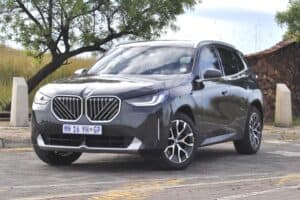Low monthly warranty claims testament of popular hatchback's reliability.

Even when Hyundai launches a model that isn’t the i20, they still brag about the Hyundai i20. That approach was par for the course when they had the chance to introduce the new Hyundai i20 last week.
The reason Hyundai boasts about the i20 is because of what is called its “warranty burn rate”. That is the total of warranty claims made by all the Hyundai agents around the world to the Korean carmaker’s headquarters in Seoul each month. This amount gets divided through the number of cars of that specific model that was under warranty during that month.
While its not the costumers that fork out for these claims, the warranty burn rate paints a picture about reliability. If things do not break under warranty, common sense dictates that they’ll still be in good stead once the cover expires.
ALSO READ: Hyundai’s EV focus won’t lead to scrapping of i10, i20 or i30
Hyundai i20’s ‘outstanding built quality’
The Hyundai i20’s warranty burn rate is quite astonishing; hence their sentiment for bringing it up at every opportunity.
“It is a reliable, solid car with outstanding build quality. A warranty burn rate of only R10.52 per unit per month bears testimony of that,” says Stanley Anderson, sales and operations director of Hyundai Automotive South Africa.
It is for this reason that the manufacturer did not tinker too much to the updated model range. The mid-life enhancements merely include a few exterior styling tweaks and a range revision that sees the being line-up streamlined from eight to five.

Different grading structure
The Motion and Fluid trim level denominators have made way for Premium, Executive and N Line. The three engines that served since the current model’s introduction in 2021 as been kept, each assigned to a trim level.
The naturally aspirated 1.2-litre petrol engine that produces 61kW of power and 115Nm of torque serves on Hyundai i20 Premium variants. It is offered in a choice of five-speed manual or six-speed automatic gearbox.
The naturally aspirated 73kW/133Nm 1.4-litre petrol mill provides motivation for model in Executive guise which are also mated to either five-speed manual or six-speed auto transmission.
The 90kW/172Nm 1.0-litre blown mill is reserved for the N Line. The manual gearbox is no longer offered on the turbo variant, leaving the seven-speed dual-clutch transmission as the sole gearbox.
ALSO READ: Small crossover SUV Hyundai Exter set for September introduction
Exterior tweaks
The Hyundai i20 sports as new grille with honeycomb pattern at the front which sits above a redesigned bumper with L-shaped air inlets. New taillight cluster and redesigned bumper feature at the rear.
Things have stayed the same inside, which means the abundance of hard plastics, which disappointed us during the model’s launch, persists. Apart from that, the styling remains fresh and modern.
Head and legroom in the rear will keep adults comfortable on short trips, with the 311-litre boot big enough for everyday life.
The Hyundai i20 Premium boasts a generous set of specifications for a so-called base model. Its exterior features LED daytime running lights and body-coloured bumpers and door handles. Inside, it has an 8-inch infotainment system with Apple Carplay, Android Auto and voice control, 3.5-inch digital instrument cluster, keyless entry and reverse camera.
The Executive’s exterior is enhanced by 16-inch alloys and electric folding and heated side mirrors with colour-coded caps.

Creature comforts
Inside the mid-trim variant features a leather steering wheel and gear lever, wireless phone charger, cooled glovebox and cruise control.
ALSO READ: Kia Rio facing the axe as right-hand drive production ceases
The Hyundai i20 N Line features a number of visual upgrades along with more tech.
While two-tone colour options are offered on bot the Executive and N Line, Moonlight Blue paintwork with black contrast roof is reserved for the flagship.
Upping the interior aesthetic stakes are imitation leather seats with red contrast stitching and N branded backrests. Plus red inserts around the cabin, N steering wheel and gear lever with red stitching, imitation alloy pedals and a sunroof.
On the tech side it gets LED headlights, six-speaker Bose sound system, automatic aircon and drive mode selector.
ALSO READ: Streamlined, facelift Hyundai i20 range officially priced
Solid ride quality
Two front airbags and ABS with EBD are standard across the range. Hill-start assist, electronic stability control and park assist are reserved for the N Line.
The Citizen Motoring sampled the N Line during the local launch. And it doesn’t take long to appreciate that it offers a solid and punchy ride. It comes at a R117 600 premium over the auto Executive, but in terms of the segment, it packs a proper punch in terms of power, styling and specifications.
The updated Hyundai i20 will undoubtedly build on its proven success. Not only by virtue of being a solid product, but also cashing in on the discontinuation of its Korean sister brand’s Kia Rio.
Hyundai i20 pricing
- i20 1.2 Premium R309 900
- i20 1.2 Executive R329 900
- i20 1.4 Premium AT R329 000
- i20 1.4 Executive AT R349 900
- i20 1.0 T-GDI N Line DCT R467 500
- Pricing includes seven-year/200 000km warranty and a four-year/60 000 km service plan.
Support Local Journalism
Add The Citizen as a Preferred Source on Google and follow us on Google News to see more of our trusted reporting in Google News and Top Stories.






